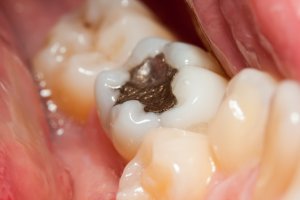A biological dentist is a dentist who has graduated from dental school but focuses their practice on a whole-body approach to oral health. They promote minimally invasive treatment methods and use biocompatible materials for fillings and implants.
However, they also offer traditional dental services like cleanings, treatments for gum disease, and implants.
If this type of dentistry interests you, keep reading to find out:
- The difference between biological and traditional dentistry
- The difference between holistic and biological dentistry
- Alternative treatment options
- How to find a biological dentist near you
We hope this article gives you the information you need to choose the best type of dentistry for you. Whatever you decide, whether biological, holistic, or traditional, all dentists recommend brushing and flossing twice a day, and routine semi-annual checkups and cleaning.
What is a biological dentist?
A biological dentist, just like most traditional dentists, believes that oral health is connected to the health of your entire body, and your overall wellbeing. It’s a well-known fact that if you have problems in your mouth, they can be caused by or cause problems in other parts of your body.
Biological dentists aim to treat oral health issues, but through a whole-body approach, taking into consideration the health of your entire body.
Biological dentists also advocate minimally invasive approaches and only use biocompatible dental materials. They will often use ceramic dental implants instead of titanium implants and they offer mercury amalgam filling removal, following the SMART protocol (Safe Mercury Amalgam Removal Technique).


Some other qualities of biological dentists include:
- Bio-compatibility testing: A blood test or muscle test that helps determine the most compatible filling material for your body
- Low-radiation digital x-rays: These expose you to 80–90% less radiation than traditional x-rays
- Root canal alternatives: Root canals are only performed as a last resort, and some bio dentists won’t perform them at all
- Hold the fluoride: Bio dentists are generally against the use of fluoride treatments, fluoride toothpaste, and fluoridated water
What is the mouth-body connection?
‘Mouth-body connection’ is a concept that biological dentists use to say that oral health and whole-body health are intertwined. Traditional dentists agree with this concept. In fact, evidence suggests as much — according to the Mayo Clinic, oral health problems can make other conditions worse and can even affect heart conditions.
Silver fillings are actually 50–55% mercury. When these silver fillings are replaced with more biocompatible materials, a number of symptoms can decline. Additionally, hidden oral infections can negatively impact one’s health. Infections can be cleaned out or unhealthy teeth extracted to set the stage for genuine improvements in serious illness.
As healthcare providers, we work hard to use materials that have minimal side effects or impact on your immune system. This often involves testing techniques to find what resonates with you as an individual. The biggest benefit is that biological dentists collaborate with each other in a number of ways. We are looking for answers for our patients and we will reach out to colleagues for insights and suggestions.
No one doctor knows everything, but a large group of doctors can add so much more of an answer for patients to benefit. Biological dentistry is an integrative approach where we look into many health systems to find your answer.
Dr. John Grill, Biological and Holistic Dentistry of Tennessee
Additionally, there are studies that suggest that inflammation in the gums and periodontitis can play a role in various diseases, and other diseases, like diabetes and HIV, can make oral health conditions worse.
Difference between biological dentists and traditional dentists
Both traditional dentists and biological dentists have graduated from dental school and have a DDS or DMD degree. In fact, biological dentists offer many of the same services as traditional dentists, like routine cleanings, fillings, and gum disease treatment.
The main difference is that traditional dentists put the emphasis on oral health, including prevention and treatment of problems with teeth and gums. Biological dentists will try to find the cause of a patient’s symptoms by taking the entire body into consideration.
For example, if a traditional dentist encounters a patient with a cavity, they will drill the cavity and fill it. They will also tell you how to avoid more cavities in the future. A biological dentist who has a patient with a cavity may do a more in-depth inquiry into the patient’s habits, including diet, workout routine, and sleep patterns.
Neither is strictly right or wrong — different people prefer different methods, but the most important thing is to see a licensed practitioner, go to your semi-annual check-ups, communicate with your dentist about any concerns you have, and follow the guidelines for maintaining good oral health.
Have a look at the table below for a summary of the differences:
Biological | Traditional | |
Treatment method | Search for the root of oral health problems, even if it is another part of the body | Treatment focuses on the mouth, gums, teeth, and jaw |
Amalgam fillings | Never use amalgam fillings and encourage removal of these fillings using SMART protocol | Do use amalgam fillings, meeting the safety guidelines |
Fluoride | Against the use of fluoride, use alternative methods to fight against cavities | Use safe amounts of fluoride to combat cavities |
Root canal | Root canals are only performed (if at all) as a last resort | Use root canals to save natural teeth |
Biocompatibility of dental materials | Always try to use biocompatible materials | Use materials for their effectiveness and safety |
Difference between holistic and biological dentistry
Holistic and biological dentists approach oral health through whole-body health, and indeed they do have very similar practices. However, there are some slight differences between them:
- Associations: Biological and holistic dentists are associated with different base organizations. For biological dentistry, the organization is called the International Academy of Biological Dentistry and Medicine, and for holistic dentistry, it’s the Holistic Dental Association.
- Marketing: Both branches of dentistry use different marketing strategies. Holistic dentistry marketing uses keywords like ‘natural healing’ and ‘spiritual healing’ and biological dentistry tends to market in a more traditional way, often without using these terms, but still focusing on a whole-health approach.
- Patients: Patients who choose holistic dentistry are often looking for alternative treatments as well as spiritual healing methods, while patients who choose biological dentistry are looking for the whole-body approach and traditional dentistry methods as long as they use biocompatible materials and minimally invasive procedures.
- Treatment options: Holistic dentists are more likely to offer alternative treatment options; however, biological dentists are also usually experts in this area as well. Sometimes it comes down to how each individual dentist describes their methods and processes.
Biological dentistry tooth chart
The official term is the ‘meridian’ tooth chart and is based on the meridian system. This system has its roots in ancient Chinese medicine. Meridians are channels that run through the body, through which energy or ‘qi’ flows. If a channel is blocked, then the qi doesn’t flow and this is when people experience illness or pain.
When it comes to teeth, these charts connect specific teeth to different organs, muscles, joints, and glands in your body, as well as parts of the spine. The meridian chart also connects teeth with different emotional imbalances a person may be experiencing.
While this chart is a tool that your biological dentist may use to try to better understand where certain oral health problems may originate, patients should not try to self-diagnose and treat at home using this chart.
Biological dentistry services
Biological dentists offer many of the same services as traditional dentists, including routine cleanings and treatment for gum disease. However, there are some services that biological dentists specialize in, like dental amalgam removal and root canal alternatives.
Biological dentist amalgam removal


There is a lot of controversy surrounding the amalgam filling debate, mostly because of concerns of potential side effects from the mercury they contain. Most amalgam fillings have 50% mercury, 20% silver, 16% tin, and 15% copper. However, dental amalgam is considered to be safe by various health organizations around the world.
The Food and Drug Administration also considers amalgam fillings to be safe for anyone older than 6 years of age, but in Norway and Sweden, dental amalgams have been banned for environmental reasons.
The case against amalgam fillings centers around potential allergic reactions, mercury poisoning, and environmental contamination. Between 1% and 3% of the population have some allergy to amalgam fillings.
Amalgam removal with biological dentists is a common practice and is done using the SMART method. This technique involves:
- Using an air filtration system
- Administering an adsorbent solution
- Nasal mask for clean air
- Dental dam to isolate the treated tooth
- Use of saliva evacuator
- Keeping the filling cool
- Removing the filling in large chunks
- Disposing of amalgam filling material safely
Biological dentist root canal
Biological dentists avoid root canals, and if they use them it will be an absolute last resort. They prefer extracting a tooth before performing a root canal.
They then replace the tooth with an implant, usually made from ceramic. The reason for this is that biological dentists believe that root canals may leave bacteria behind, which could cause an abscess or even chronic health problems further down the road.
In the video below a dentist in Beverly Hills describes the differences in biological and conventional dentistry concerning root canals:
Conclusion
Biological dentistry is an approach based on the belief that oral health is deeply intertwined with a person’s overall health and wellbeing. Biological dentists advocate minimally invasive procedures and use only dental materials that are biocompatible.
While biological dentistry isn’t recognized as an official practice by the ADA, biological dentists have graduated from dental school and have the same license to practice as traditional dentists. They also offer many of the same services as traditional dentists, including routine checkups and gum disease treatment.
FAQs
What is biological dentistry?
Biological dentistry is dentistry approached through the belief system that dental and oral health is fundamentally connected to a person’s overall health and wellbeing. Biological dentists use biocompatible materials and minimally invasive procedures.
Is a holistic or biological dentist better?
Holistic and biological dentists are very similar. Both believe in a whole-body approach to dentistry, and both believe in minimally invasive procedures and biocompatible materials. However, holistic dentists tend to put a greater emphasis on energy and spiritual healing.
Is biological dentistry safe?
Biological dentists have the same dental degrees as traditional dentists and provide many of the same services. Ultimately, it’s up to each individual to decide which method is best for them. The ADA warns against the risks of biological dentistry in an official statement.
Fda.gov: Dental amalgam fillings. Consulted 5th June 2021.
Mayoclinic.org: Oral health: A window to your overall health. Consulted 5th June 2021.




